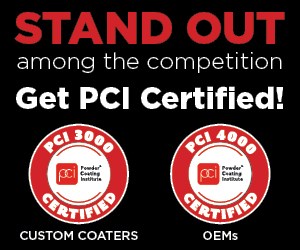Software Supports Continuous Process Improvement
Integrated Technologies’ Plato’s Process Planner is a process modeling and planning software that calculates energy, water, waste streams, chemical usage, air emissions and costs by tank, process, line and overall wet-process facility.
Integrated Technologies’ Plato’s Process Planner is a process modeling and planning software that calculates energy, water, waste streams, chemical usage, air emissions and costs by tank, process, line and overall wet-process facility. According to the company, the software is well-suited as a tool for supporting continuous process improvement, providing the cost and quantity data needed to enhance identification, quantification/prioritization, justification and documentation of process improvements.
Plato also can provide a “living process notebook” to capture and build process knowledge as an asset for process improvement; enhancing operations and maintenance, and training efficiency; and helping to avoid past problems. The software’s wizards and forms allow users to easily set up facilities and process lines, and enter process solution and tank data, rinse configurations, and production data. It then generates process flow diagrams with data displays and modifiable forms for objects such as tanks, scrubbers, waste streams and more, and cursor-activated data displays for flows between objects.Related Content
-
Corrosion Resistance Testing for Powder Coating
Salt spray can be useful to help compare different pretreatment methods and coatings but it does not tell us much about the corrosion resistance of a part over time in the field. Powder coating expert Rodger Talbert offers insights into how to get a better idea of how to improve a part’s corrosion resistance in the real world.
-
Mastering Uniformity Through Surface Prep Standardization
By standardizing surface preparation processes and adopting surface energy measurement, a company can achieve uniformity, quality and cost reduction.
-
NASF/AESF Foundation Research Project #121: Development of a Sustainability Metrics System and a Technical Solution Method for Sustainable Metal Finishing - 12th Quarterly Report
This NASF-AESF Foundation research project report covers the twelfth quarter of project work (January-March 2023) at Wayne State University in Detroit. In this period, our main effort concentrated on documenting technical content that was yet to be reported, including analysis of costs for specific technologies for sustainability improvement.












